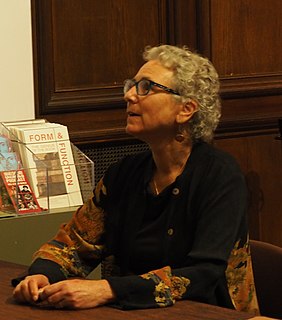A Quote by Pam Ferris
Grief is a terrible, painful place. You can't grind away on grief in a solid way and say, 'I'm going to work on this until it's over' because it will be with you for the rest of your life, whatever you do. So, you deal with it and move on.
Related Quotes
The interesting thing about grief, I think, is that it is its own size. It is not the size of you. It is its own size. And grief comes to you. You know what I mean? I’ve always liked that phrase “He was visited by grief,” because that’s really what it is. Grief is its own thing. It’s not like it’s in me and I’m going to deal with it. It’s a thing, and you have to be okay with its presence. If you try to ignore it, it will be like a wolf at your door.
All those years I fell for the great palace lie that grief should be gotten over as quickly as possible and as privately. But, what I've discovered is that the lifelong fear of grief keeps us in a barren, isolated place, and that only grieving can heal grief. The passage of time will lessen the acuteness, but time alone, without the direct experience of grief, will not heal it.
My sister will die over and over again for the rest of my life. Grief is forever. It doesn't go away; it becomes a part of you, step for step, breath for breath. I will never stop grieving Bailey because I will never stop loving her. That's just how it is. Grief and love are conjoined, you don't get one without the other. All I can do is love her, and love the world, emulate her by living with daring and spirit and joy.
Grief does not seem to me to be a choice. Whether or not you think grief has value, you will lose what matters to you. The world will break your heart. So I think we’d better look at what grief might offer us. It’s like what Rilke says about self-doubt: it is not going to go away, and therefore you need to think about how it might become your ally.
Grief is accepting the reality of what is. That is grief's job and purpose-to allow us to come to terms with the way things really are, so that we can move on. Grief is a gift of God. Without it, we would all be condemned to a life of continually denying reality, arguing or protesting against reality, and never growing from the realities we experience.
New grief, when it came, you could feel filling the air. It took up all the room there was. The place itself, the whole place, became a reminder of the absence of the hurt or the dead or the missing one. I don't believe that grief passes away. It has its time and place forever. More time is added to it; it becomes a story within a story. But grief and griever alike endure.
Grief causes you to leave yourself. You step outside your narrow little pelt. And you can’t feel grief unless you’ve had love before it - grief is the final outcome of love, because it’s love lost. […] It’s the cycle of love completed: to love, to lose, to feel grief, to leave, and then to love again. Grief is the awareness that you will have to be alone, and there is nothing beyond that because being alone is the ultimate final destiny of each individual living creature. That’s what death is, the great loneliness.
Nothing has a more sinister effect on art than the artist's desire to prove that he's good. The terrible temptation of idealism! You must achieve mastery over your idealism, over your virtue as well as over your vice, aesthetic mastery over everything that drives you to write in the first place - your outrage, your politics, your grief, your love!
to love life, to love it even when you have no stomach for it and everything you've held dear crumbles like burnt paper in your hands, your throat filled with the silt of it. When grief sits with you, its tropical heat thickening the air, heavy as water more fit for gills than lungs; when grief weights you like your own flesh only more of it, an obesity of grief, you think, How can a body withstand this? Then you hold life like a face between your palms, a plain face, no charming smile, no violet eyes, and you say, yes, I will take you I will love you, again.
Whatever you do to recover from a loss, people will be critical because they believe that the only way to recover is their way. And you will even run into some people who should be run into by rhinos because they actually don't want to see you get over your tragedy at all; grief is a spectator sport for them.




































